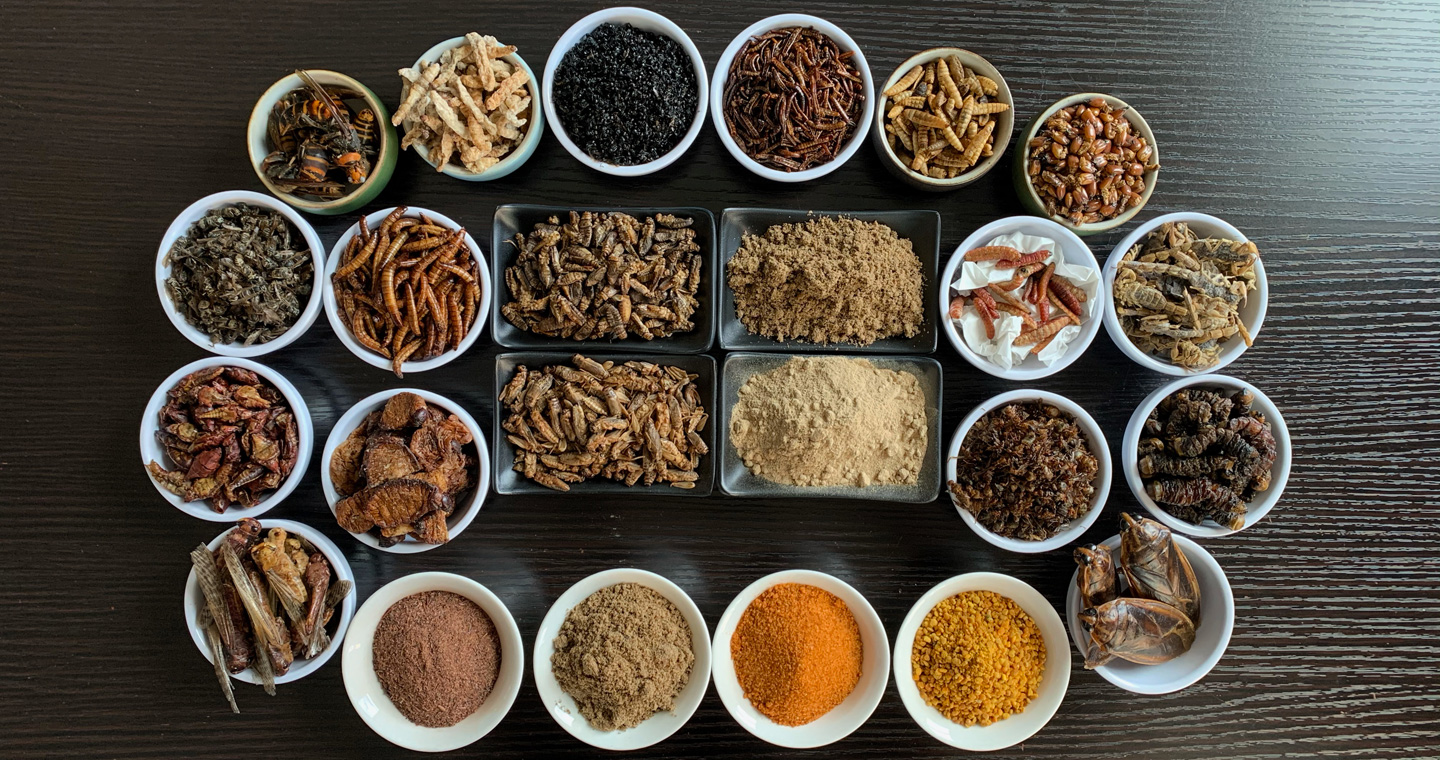Why insects are the next global superfood
IFAD Asset Request Portlet
Asset Publisher
Why insects are the next global superfood
Estimated reading time: 4 minutes
Agriculture is a major contributor to climate change. But it is also part of the solution. Smallholder farmers are key to reducing emissions as they tend not to use harmful fertilizers or machinery powered by fossil fuels.
That’s why, at COP27, IFAD and the United States launched the Global Methane Pledge partnership to help small-scale farmers in developing countries further reduce emissions while adapting to climate change.
One potential solution is to produce insects as human food and livestock feed. Insects provide a source of protein and micronutrients without releasing large quantities of greenhouse gases. They have a high reproduction rate, short life cycle and do not require a lot of space or water for rearing.
Insects are an essential food source for at least 2 billion people, but the Western world has only recently begun to re-evaluate their role in our food systems. Given the low input costs and space required, even the poorest people in developing countries can collect, rear, process, sell, and eat insects.
|
|
With over 2,000 kinds of edible insects—from crickets to cicadas—there are many tasty options to choose from. While eating insects alone will not solve climate change, this lifestyle change can significantly lessen our impact on the environment, while being good for our bodies because:
- Up to 80 per cent of insects’ body weight is made up of protein and micronutrients, with the protein content exceeding that of all traditional livestock.
- Insects are low in fat, low in carbohydrates and packed with vitamins, fibre and minerals.
- Mealworms have the same Omega-3 levels as fish.
- Insects do not transmit zoonotic infections to humans and livestock in the same way as animals.
Some companies have started producing and processing insects into flour for animal feed for example, while others are raising awareness of edible insects—including Brooklyn Bugs which was set up by IFAD’s Recipes for Change chef, Joseph Yoon.
As climate change affects the distribution and availability of food, edible insects are a potential growth area, particularly as consumer demand rises. We may soon see ready-made insect-based food on our supermarket shelves.
A Swedish version of this piece was originally published in Global Bar Magazine.
Read more about the potential of edible insects for food and feed security in FAO’s publication.
Publication date: 19 January 2023
